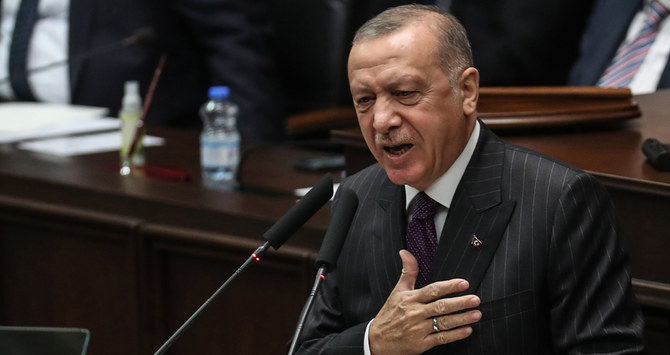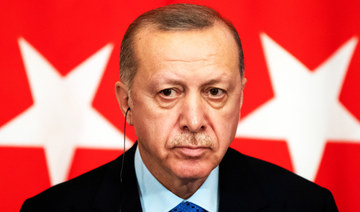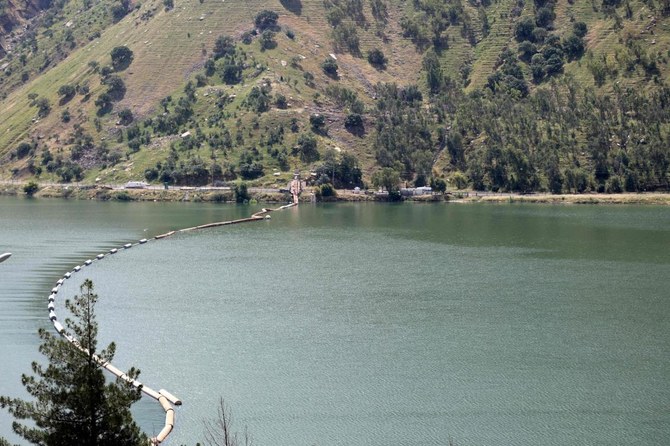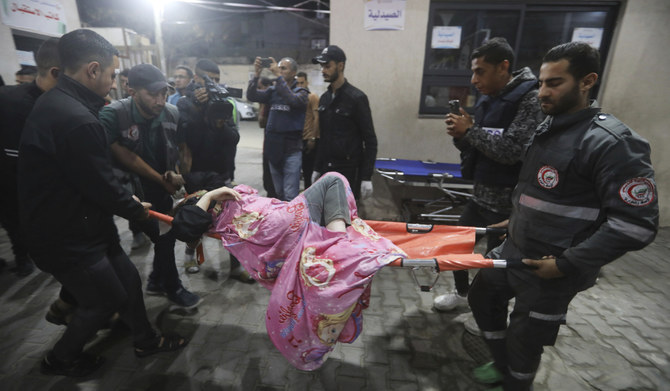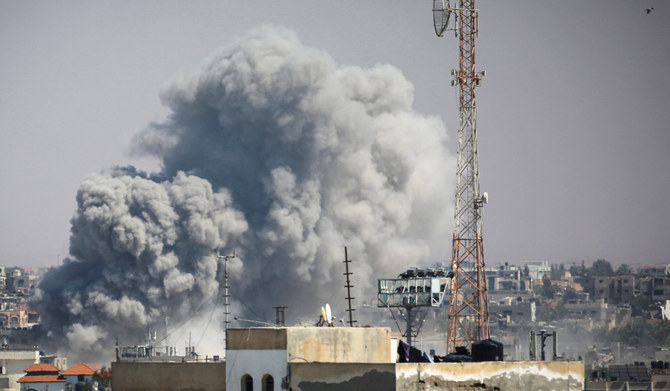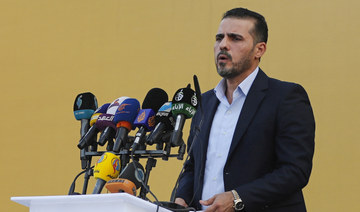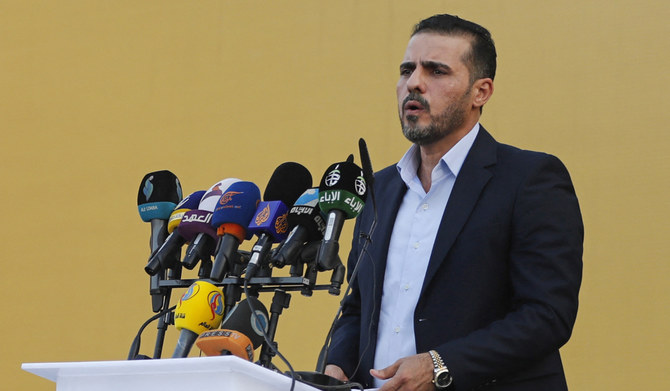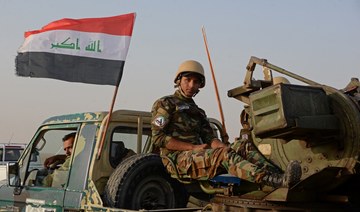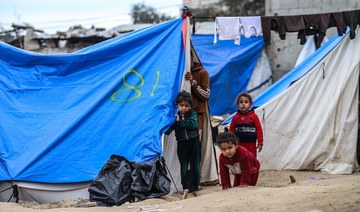ANKARA, BRUSSELS: Recep Tayyip Erdogan faced isolation on two fronts on Wednesday as European and Russian diplomats moved to rein in the Turkish president’s adventurism in the eastern Mediterranean and the Caucasus.
EU officials admitted their strategy to defuse tensions with Turkey was unraveling only two weeks after it began. Despite an EU summit deal in the early hours of Oct. 2 aimed at persuading Ankara to stop exploring for natural gas in Greek and Cypriot territorial waters, Turkey has redeployed a survey vessel with an armed escort.
Three European diplomats said this gave the impression that Ankara was toying with Brussels.
EU leaders had failed to come up with a solution to the gas dispute, instead proposing a “carrot-and-stick” approach — offering benefits but also threatening sanctions — that had failed, the diplomats said.
“EU leaders kicked the can down the road by saying they would come back to the issue in December. Now it is coming back with a vengeance,” one diplomat said.
Greece and Cyprus will raise the gas dispute again when EU leaders meet on Thursday and Friday, arguing that the latest escalation has demonstrated the need for more urgent action, including sanctions. German Foreign Minister Heiko Maas canceled a trip to Ankara in protest at the deployment of the Turkish exploration ship Oruc Reis.
HIGHLIGHT
Greece and Cyprus will raise the gas dispute again when EU leaders meet on Thursday and Friday, arguing that the latest escalation has demonstrated the need for more urgent action, including sanctions.
Meanwhile, Russia downgraded its relationship with Turkey on Wednesday amid growing concern in Moscow over Ankara’s role in the conflict in Nagorny-Karabakh.
“Russia has never considered Turkey as its strategic ally, only a partner,” Russian Foreign Minister Sergey Lavrov said. He also warned that Turkey’s involvement in the conflict should be transparent.
“We disagree with the position which has been voiced by Turkey and which has also been expressed by Azerbaijan’s president,” Lavrov said. “We cannot agree … that a military solution to the conflict is possible and admissible.”
Richard Giragosian, director of the Regional Studies Center in Yerevan, said Moscow was responding to Erdogan’s assertion of power in the South Caucasus, which Moscow saw as part of its sphere of influence.
“Lavrov’s statement … is a direct message and warning to Turkey, driven by a responsive Russian posture to push back and push out Turkey from encroaching in the region and challenging Russian interests,” he said.
“Apart from Azerbaijan’s decision to deceive Moscow by rejecting the cease-fire, Turkey’s determination to defy the Kremlin poses a real obstacle to regional security.”



